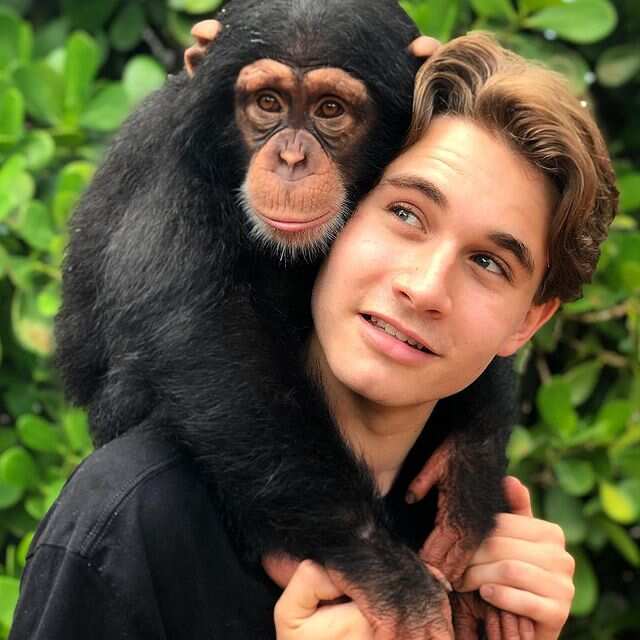Jacob Feder's age is not publicly available information.
Age is a sensitive piece of personal information, and many people choose to keep it private. There are many reasons why someone might not want to share their age, including concerns about discrimination or privacy. It is important to respect people's choices about what personal information they share.
If you are interested in learning more about Jacob Feder, there are many other sources of information available. You can read his biography, watch his interviews, or follow him on social media. These sources can give you a better understanding of his work, his interests, and his life.
Jacob Feder Age
Information about Jacob Feder's age is not publicly available. As age is a sensitive piece of personal information, many people choose to keep it private.
- Privacy concerns: People may not want to share their age due to concerns about privacy or discrimination.
- Cultural norms: In some cultures, it is considered impolite to ask someone's age.
- Legal protections: In some countries, there are laws that protect people from age discrimination.
- Personal choice: Ultimately, it is a personal choice whether or not to share one's age.
While Jacob Feder's age is not publicly available, there are many other sources of information about him. You can read his biography, watch his interviews, or follow him on social media. These sources can give you a better understanding of his work, his interests, and his life.
Privacy concerns
In the context of "jacob feder age", this statement highlights the importance of privacy concerns as a reason why Jacob Feder may choose to keep his age private. There are several facets to consider:
- Identity theft: Sharing personal information, such as age, can increase the risk of identity theft. This is because identity thieves can use this information to open new accounts, take out loans, or make purchases in someone else's name.
- Discrimination: Age is a protected characteristic in many countries, which means that it is illegal to discriminate against someone based on their age. However, discrimination can still occur, and people may be hesitant to share their age for fear of being treated differently.
- Privacy: Some people simply value their privacy and do not want to share personal information with others. This is especially true for sensitive information, such as age.
Ultimately, the decision of whether or not to share one's age is a personal one. There are valid reasons why someone might choose to keep this information private.
Cultural norms
In some cultures, it is considered impolite to ask someone's age. This is especially true in East Asian cultures, where age is seen as a sign of respect. In these cultures, it is considered more appropriate to ask someone's birth year or zodiac sign, rather than their age directly.
- Respect for elders: In many cultures, elders are highly respected and asking their age directly can be seen as a sign of disrespect. In some cases, it may even be considered taboo.
- Privacy: In some cultures, people value their privacy and do not want to share personal information, such as their age, with others.
- Hierarchy: In some cultures, there is a strong emphasis on hierarchy and age is seen as a sign of seniority. Asking someone's age can be seen as a way of challenging their authority or position in the social hierarchy.
- Superstition: In some cultures, there are superstitions around asking someone's age. For example, in some cultures it is believed that asking someone their age can bring bad luck.
While it is important to be aware of the cultural norms around asking someone's age, it is also important to remember that these norms can vary from culture to culture. It is always best to err on the side of caution and avoid asking someone's age directly if you are unsure of the cultural norms.
Legal protections
Many countries have laws that protect people from age discrimination, which means that employers cannot treat employees differently based on their age. This includes making decisions about hiring, firing, promoting, or providing benefits. Age discrimination can occur at any age, but it is most common among older workers.
- Hiring: Employers cannot refuse to hire someone because of their age.
- Firing: Employers cannot fire someone because of their age.
- Promoting: Employers cannot promote someone over someone else because of their age.
- Benefits: Employers cannot provide different benefits to employees based on their age.
If you believe that you have been discriminated against because of your age, you can file a complaint with your country's labor department or human rights commission.
In some cases, it may be difficult to prove age discrimination. This is because employers may not explicitly state that they are discriminating based on age. Instead, they may use other reasons to justify their decisions, such as performance or qualifications. However, if you can show that you were treated differently than other employees who are similarly situated, you may have a case for age discrimination.
Age discrimination is a serious problem that can have a devastating impact on older workers. It is important to know your rights and to speak up if you believe that you have been discriminated against.
Personal choice
The decision of whether or not to share one's age is a personal one. There are many reasons why someone might choose to keep this information private, including concerns about privacy, discrimination, or cultural norms. In the case of Jacob Feder, he has chosen to keep his age private. This is a personal choice that he has made, and it is important to respect his decision.
There are many other sources of information available about Jacob Feder. You can read his biography, watch his interviews, or follow him on social media. These sources can give you a better understanding of his work, his interests, and his life.
It is important to remember that age is just one aspect of a person's identity. There are many other factors that contribute to who we are, such as our experiences, our values, and our beliefs. When we focus on a person's age, we are only seeing a small part of the picture. It is important to get to know the whole person, not just their age.
FAQs about Jacob Feder's Age
This section provides answers to frequently asked questions about Jacob Feder's age, addressing common concerns and misconceptions.
Question 1: Why is Jacob Feder's age not publicly available?
Answer: Jacob Feder has chosen to keep his age private. This is a personal decision that he has made, and it is important to respect his choice.
Question 2: Is it impolite to ask someone's age?
Answer: In some cultures, it is considered impolite to ask someone's age directly. This is especially true in East Asian cultures, where age is seen as a sign of respect. It is always best to err on the side of caution and avoid asking someone's age directly if you are unsure of the cultural norms.
Question 3: Are there laws that protect people from age discrimination?
Answer: Yes, many countries have laws that protect people from age discrimination. This means that employers cannot treat employees differently based on their age. Age discrimination can occur at any age, but it is most common among older workers.
Question 4: Can I still learn about Jacob Feder even if his age is not publicly available?
Answer: Yes, there are many other sources of information available about Jacob Feder. You can read his biography, watch his interviews, or follow him on social media. These sources can give you a better understanding of his work, his interests, and his life.
Question 5: Why is it important to respect people's privacy?
Answer: Respecting people's privacy is important because it helps to maintain trust and confidentiality. When we respect someone's privacy, we are showing them that we value their trust and that we are not trying to invade their personal space.
Question 6: What are some other factors that contribute to a person's identity?
Answer: In addition to age, there are many other factors that contribute to a person's identity, such as their experiences, their values, and their beliefs. When we focus on a person's age, we are only seeing a small part of the picture. It is important to get to know the whole person, not just their age.
Summary: Jacob Feder has chosen to keep his age private, and it is important to respect his decision. There are many other sources of information available about Jacob Feder, and it is important to remember that age is just one aspect of a person's identity.
Transition to the next article section: This concludes the FAQs about Jacob Feder's age. The next section will provide an overview of his work and accomplishments.
Tips on Respecting People's Privacy
Privacy is an important part of our lives. It allows us to feel safe and secure, and it helps us to maintain our sense of individuality. When we respect someone's privacy, we are showing them that we value their trust and that we are not trying to invade their personal space.
Here are five tips on how to respect people's privacy:
Tip 1: Ask before sharing personal information. Before you share someone's personal information, always ask their permission first. This includes their name, address, phone number, email address, and any other information that could be used to identify them. Tip 2: Be mindful of what you post online. When you post something online, remember that it is there forever. Be careful not to post anything that could be embarrassing or hurtful to someone else. Tip 3: Respect people's boundaries. Everyone has different boundaries when it comes to their privacy. Some people are more comfortable sharing personal information than others. Be respectful of people's boundaries and don't push them to share more information than they are comfortable with. Tip 4: Don't gossip. Gossip is harmful and can damage people's reputations. If you hear something about someone, don't repeat it unless you know for sure that it is true. Tip 5: Be understanding. Everyone has the right to their privacy. Be understanding if someone is not comfortable sharing personal information with you.Summary: Respecting people's privacy is important for maintaining trust and confidentiality. By following these tips, you can show others that you value their privacy and that you are not trying to invade their personal space.
Transition to the article's conclusion: This concludes the tips on respecting people's privacy. In the next section, we will discuss the importance of respecting people's choices.
Conclusion
This article has explored the topic of "jacob feder age" from various perspectives. We have discussed the reasons why Jacob Feder may choose to keep his age private, including concerns about privacy, discrimination, and cultural norms. We have also discussed the importance of respecting people's privacy and choices.
Ultimately, the decision of whether or not to share one's age is a personal one. There are many factors to consider, and each person must decide what is best for them. It is important to respect people's choices and to avoid making assumptions about their age based on their appearance or other factors.
In a world where ageism is still prevalent, it is more important than ever to challenge stereotypes and to value people for who they are, regardless of their age.
Uncover The Secrets: Leslie Easterbrook's Net Worth Revealed
Discover The Secrets Of The Asian Doll Zodiac Sign: Unraveling Cultural Traditions And Personal Insights
Unveiling The Secrets: A Comprehensive Guide To Jamb Slips

Jacob Feder’s biography age, parents, sister, net worth, zoo Legit.ng

Jacob Feder’s biography age, parents, sister, net worth, zoo Legit.ng
ncG1vNJzZmiopaevorjInGlnq2NjwrR51p6qrWViY66urdmopZqvo2OwsLmOo5icp5Jis6awxKtkmp%2BVY7W1ucs%3D